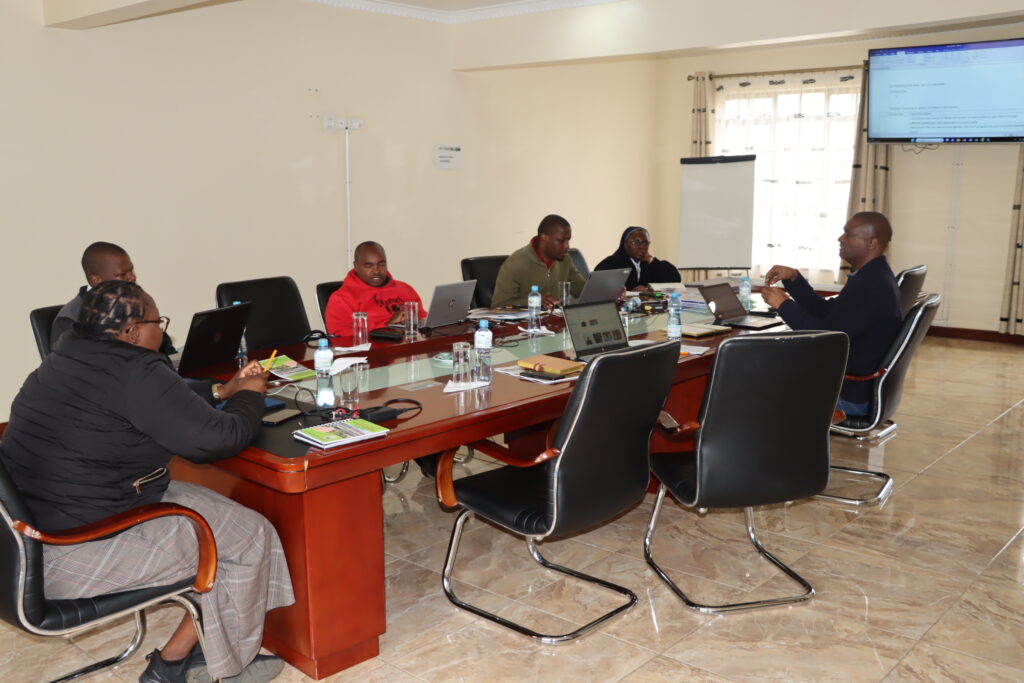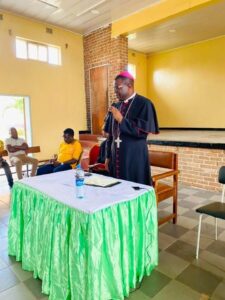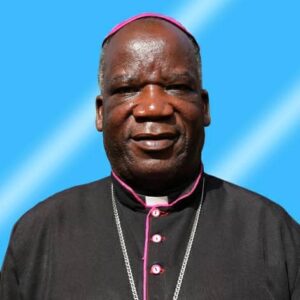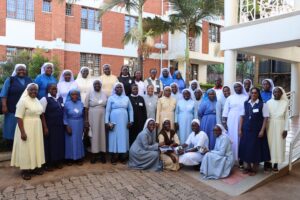AMECEA: After the Convening of Catholic Care for Children, What Next?

Technical team during session. Credit AMECEA online
Sr. Jecinter Antoinette Okoth, FSSA
Weeks after the convening of Catholic Care for Children (CCC) that brought together participants from across the globe including Bishops, Religious, clergy and lay but also partners from Non-Governmental Organizations (NGO’s), government representatives, from Vatican, and those from educational institutions among others, a technical team has met to brainstorm on way forward focusing on the findings from a study that offers a framework for the protection of vulnerable children in Eastern Africa region.
A synthesis of study findings published in a document titled “A Regional Portrait of Catholic Care for Children in Eastern Africa,” was launched during the CCC convening in the month of May, and describes the growing efforts by Religious men and women in ensuring that children can grow up in safe, nurturing families or family-like environment rather than institutions.
During a two-day meeting held from the 5 to 6th June, with participants comprising of representatives from the Association of Member Episcopal Conferences in Eastern Africa (AMECEA) Social Communications Department in collaboration with representatives from the Catholic Care for Children-Kenya (CCCK), the team proposed various ways to ensure that recommendations from the convening are implemented.
As a way forward, the AMECEA-CCCK team has identified four thematic areas to help in the realization of this dream of having a holistic family and community-based care for the vulnerable children.
Some of the areas of concern include: winning hearts and minds of various stakeholders in society through various ways such as emphasizing on child care reforms as an agenda in all church programmes and structures especially in Small Christian Communities (SCCs), fostering Church advocacy on care reforms through robust communication and advocacy strategies execution, and encouraging inclusion of safeguarding and child care and care reforms in the formation houses and seminaries among other approaches.
The team proposed capacity development being that care reforms is a new area of concern not yet understood by many, hence during the Monday and Tuesday meeting participants suggested “strengthening the role of Catholic academic institutions in development of training curriculums and curriculum support materials on child care, safeguarding and care reforms, development of integrated plans and framework for child care reforms to strengthen unity of purpose and action on child care and establishment of capacity gaps among actors and institutions across the Eastern Africa region.”
Additionally, the AMECEA-CCCK team encouraged collaboration which should be realized by holding regular joint monitoring and planning meetings among all stakeholders on child care and care reforms, fostering partnership between the priests, Religious women and men, strengthen advocacy between the Church and Governments and also encouraging promotion of positive African traditional values and forms of child care to strengthen alternative family-based care.
The team further saw the need for resource mobilization as a thematic area to help drive the intention of the programme. This to be realized by enhancing capacity of church workers in project designing, proposal development and implementation of child care and child care reforms initiatives, mapping out different services to support care reforms at the parish level and also through review of funding policies and priorities to increase investment in child care and care reforms.
Catholic Care for Children (CCC) is a sisters-led, charism-driven initiative aimed to ensure that children grow in a safe, nurturing families, with support from the Rauenhorst Goldman (GHR) Foundation.


